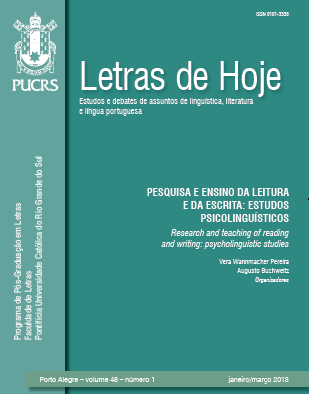Literacy and historical context, political and enunciation of school literacy
Keywords:
Literate, Literacy School, enunciative contextsAbstract
Literacy is a recurring theme in discussions and academic productions, in the media and among education professionals. This is theme that takes shape in the 1990s, amid a scenario that demonstrates that the process of schooling, from the early years, is unable to produce subjects who appropriate reading and writing so well use them in social practices that require their knowledge beyond the field of graphical code-sound. As any discussion does not occur in a vacuum of social relationships, brings to this article contextual aspects: historical, political and enunciative preceding period and permeated the initial insertion of the term (and theme) school literacy, especially in academic investigations, in order to situate the discussion of literate and literacy, which, ultimately, is the discussion of the teaching of our mother tongue writing. He uses literature to develop a focus on the theme, from the 1980s, during which, according to some scholars, inaugurated the term literacy among Brazilian education. It is understood that the main issue to be considered with regard to language, or rather the concept of working with language teachers, which permeates his whole teaching process and interfere with the learning of their students. The discussion around what teachers understand to be the language, as they take to the teaching of this language enunciative contexts, can ensure ownership graphic-sound system, its functions and social uses.Downloads
Downloads
Published
How to Cite
Issue
Section
License
Copyright
The submission of originals to Letras de Hoje implies the transfer by the authors of the right for publication. Authors retain copyright and grant the journal right of first publication. If the authors wish to include the same data into another publication, they must cite Letras de Hoje as the site of original publication.
Creative Commons License
Except where otherwise specified, material published in this journal is licensed under a Creative Commons Attribution 4.0 International license, which allows unrestricted use, distribution and reproduction in any medium, provided the original publication is correctly cited.






